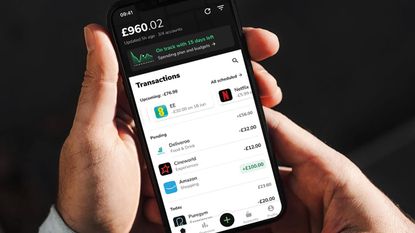How open banking became a great British success story
Over the past few years financial technology has stepped up a gear. The way we spend, save, borrow and invest is now changing rapidly


Open banking is a great British success story. Launched in 2018, this initiative, backed by the government, regulators and industry, lets third-party providers access your financial information at the touch of a button, but only after you’ve given explicit consent (renewed every 90 days). The idea is to connect various service providers to your bank account and thus benefit from a wide range of products and services that are tailored to your needs because they are based on analysing your data.
Around 300 financial technology firms (“fintechs”) and innovative-finance providers have joined the open-banking network and more than 2.5 million British consumers and businesses now use open banking-enabled products to manage their finances, access credit and make payments. One practical measure of success is that so-called API call volume – which gauges how many times an app has accessed data – has increased from 66.8 million in 2018 to nearly six billion in 2020.
Track and cut your spending
Those unfamiliar with open banking are almost certainly missing out on some great new ideas. Let’s start with account aggregation. Outfits such as Yolt, Money Dashboard and Snoop are blazing a trail in grouping together all your bank accounts into one page and then analysing how your money is spent – and, crucially, how you might spend less.
Subscribe to MoneyWeek
Subscribe to MoneyWeek today and get your first six magazine issues absolutely FREE

Sign up to Money Morning
Don't miss the latest investment and personal finances news, market analysis, plus money-saving tips with our free twice-daily newsletter
Don't miss the latest investment and personal finances news, market analysis, plus money-saving tips with our free twice-daily newsletter
Snoop is arguably the most innovative of these firms. It feels like a cross between a data cruncher and a MoneySavingExpert advice and content site. It searches for new ideas to save money, ranging from insurance through to cash savings accounts or Amazon offers. Over time all these services begin to learn more about how you spend money.
As artificial intelligence (AI) improves, these services will analyse your spending in more and more detail and come up with ideas to help you keep a lid on it. One Nordic bank, for instance, is already trialling a service that lets consumers tag their spending using over 30 broad categories and over 250 specific labels. Another way that open banking can help is by giving access to more and better savings and investing products. As far as the latter are concerned, several providers are now allowing bank-account holders to shift money from their accounts into an online-investing platform that allocates spare cash to exchange-traded funds.
Probably the best-known service is called Moneybox but it has several rivals. One recent deal, for instance, features a service called Bud, which has signed an agreement with banking challenger Dozens to encourage customers to save and invest more effectively.
A boost for small businesses
Owners of small and medium-sized enterprises (SMEs) are also benefiting from these developments. Digital bank Starling, for example, has enabled owners of SMEs to access everything from VAT and accounting software to legal documentation providers on its platform. Open banking should also help small business owners get quicker access to credit.
Atom Bank, another digital bank, is launching an open banking service that will enable “near real-time” lending decisions via an open-banking specialist called Plaid. Through access to SMEs’ transaction data, Atom can verify incomes, assess affordability, and identify and mitigate risks associated with outdated information.
Arguably though the biggest changes are emerging behind the scenes. If you want to make an online payment or top up, the typical options involve direct debits or a debit-card payment. The first works fine for very regular payments, while the latter is actually fairly expensive as the main providers, Visa and Mastercard, levy substantial interchange fees.
Open banking, by contrast, has allowed new players such as TrueLayer to offer cheaper, simpler ways of sending money. Users of Freetrade’s new Sipp trading plan can make use of a one-click service that cuts out debit cards or bank transfers so that they can get money into their account. This saves the provider’s interchange fees, giving scope for offering customers incentives to use these open-banking payment alternatives. Another open-banking application is credit ratings. Admiral Financial Services, part of the Admiral Group, for instance, has recently signed up a credit-referencing and open-banking fintech called Credit Kudos to improve its credit-assessment process.
When a customer applies for a loan from Admiral they will now be presented with the option of sharing their financial data securely as part of the application. Credit Kudos will aggregate and analyse this data in order to provide Admiral with insights about the person, including income verification. Open banking should also lead to better and quicker access to mortgage products.
What about “open finance”?
I suspect, however, that the holy grail for most MoneyWeek readers is something known as “open finance”. If investment platforms shared data, you would be able to see all your share dealing and fund accounts in one place – and maybe even use clever data tools to make a better analysis of how well your investments are performing.
If this idea sounds familiar, it is. You may remember the pensions dashboard, which has been promising to offer these insights and integration between different third-party providers for many years now. Don’t hold your breath.
Oliver Smith, who writes for the fintech publication AltFi, notes that “open finance and the pensions dashboard both suffer from the same ever-increasing complexity around the data sets they’re trying to unlock. Pensions data, for instance, [ranges] from multinational providers running on cloud infrastructure... to legacy or boutique pensions providers who still rely on analogue paper databases. Coming up with an industry-level solution to unlock that data is part of the reason the pensions dashboard has dragged on since 2016 with little progress to date”. If Smith is right, investors might have to wait a bit longer to understand their investment and pension products better.

David Stevenson has been writing the Financial Times Adventurous Investor column for nearly 15 years and is also a regular columnist for Citywire. He writes his own widely read Adventurous Investor SubStack newsletter at davidstevenson.substack.com
David has also had a successful career as a media entrepreneur setting up the big European fintech news and event outfit www.altfi.com as well as www.etfstream.com in the asset management space.
Before that, he was a founding partner in the Rocket Science Group, a successful corporate comms business.
David has also written a number of books on investing, funds, ETFs, and stock picking and is currently a non-executive director on a number of stockmarket-listed funds including Gresham House Energy Storage and the Aurora Investment Trust.
In what remains of his spare time he is a presiding justice on the Southampton magistrates bench.
-
 Private school fees soar and VAT threat looms – what does it mean for you?
Private school fees soar and VAT threat looms – what does it mean for you?Rising private school fees could see more than one in five parents pull their children out of their current school. Before you remortgage, move house or look to grandparents for help, here’s what you need to know.
By Katie Williams Published
-
 Best and worst UK banks for online banking revealed
Best and worst UK banks for online banking revealedWhen it comes to keeping your money safe, not all banks are equal. We reveal the best and worst banks for online banking when it comes to protecting your money from scams
By Oojal Dhanjal Published
-
 What pension providers don't tell you about your retirement money
What pension providers don't tell you about your retirement moneyCheck the small print from your pension provider or risk losing thousands.
By Merryn Somerset Webb Published
-
 Britain’s stifling tax burden
Britain’s stifling tax burdenChancellor Jeremy Hunt's Autumn Statement will see the tax burden rise in each of the next 5 years.
By Emily Hohler Published
-
 Brace for a year of tax rises
Brace for a year of tax risesThe government is strapped for cash, so prepare for tax rises. But it’s unlikely to be able to squeeze much more out of us.
By Matthew Lynn Published
-
 Lock in high yields on savings, before they disappear
Lock in high yields on savings, before they disappearAs interest rates peak, time to lock in high yields on your savings, while they are still available.
By Ruth Jackson-Kirby Published
-
 How to cut the cost of home insurance
How to cut the cost of home insuranceHome insurance policies are becoming increasingly expensive, but there are several ways you can keep costs down.
By Ruth Jackson-Kirby Published
-
 Are lifestyle funds still fit for purpose?
Are lifestyle funds still fit for purpose?Lifestyle funds have failed to do what they were supposed to do – shield savers from risk in the run-up to retirement.
By David Prosser Published
-
 Act now to bag NatWest-owned Ulster Bank's 5.2% easy access savings account
Act now to bag NatWest-owned Ulster Bank's 5.2% easy access savings accountUlster Bank is offering savers the chance to earn 5.2% on their cash savings, but you need to act fast as easy access rates are falling. We have all the details
By Marc Shoffman Last updated
-
 Moneybox raises market-leading cash ISA to 5%
Moneybox raises market-leading cash ISA to 5%Savings and investing app MoneyBox has boosted the rate on its cash ISA again, hiking it from 4.75% to 5% making it one of top rates. We have all the details.
By Ruth Emery Published